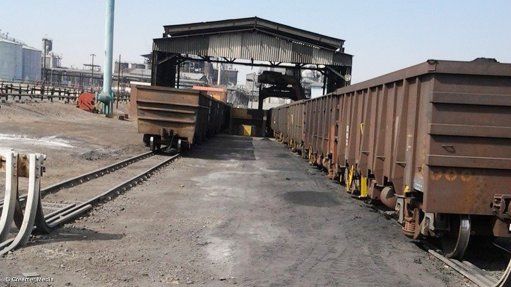
PAYING THE PRICE Bosveld Phosphates received a R1.4-million fine and an additional suspended fine of R1.1-million after admitting to the charges of polluting the river systems
In a clear indication that the judiciary will not hesitate to mete out stiff penalties to mining companies that neglect to protect and preserve the environments in which they operate, Bosveld Phosphates, of Phalaborwa, in Limpopo, was recently slapped with a R1.4-million fine and additional suspended fines totalling R1.1-million, for environmental infractions.
The infractions entailed unlawfully and intentionally or negligently causing the discharge of hazardous wastewater from the company’s tailings facilities, between December 2013 and March 2014, into the Selati river, a tributary of the Olifants river.
Bosveld pleaded guilty to all the charges in the regional court for the Regional Division of Limpopo on July 30, and, based on the company’s guilty plea, the court imposed the fine and suspended sentences, international law firm Hogan Lovells partner, mining head and Africa regional head Warren Beech tells Mining Weekly.
He adds that, based on the provisions of Section 34 (1) and (3) of the National Environmental Management Act (Nema) of 1998, Bosveld was ordered to pay the fine of R1.4-million within 14 days from July 30, 2015, for contravening Nema and the National Water Act.
This judgment is a clear indication of government’s seriousness in implementing the ‘polluter pays’ principle and holding companies responsible for neglecting to protect and preserve the environments in which they operate, Beech says.
The Olifants river flows through the Kruger National Park – one of South Africa’s biggest tourism drawcards. The wastewater that was released had the potential to cause serious damage not only to the immediate environment but also to water resources in Mozambique.
The Department of Water and Sanitation (DWS) states that quick intervention by the authorities was, therefore, critical. The department, together with South African National Parks (SANParks), ensured that immediate measures were implemented by Bosveld to ensure that the environmental risk was reduced.
These measures included dredging the impoundment facilities to create extra storage capacity to ensure that further contamination through the discharge of hazardous wastewater was prevented.
The Department of Environmental Affairs (DEA) reports that R48-million was spent by Bosveld in implementing these measures.
The Green Scorpions – a network of environmental enforcement officials from different government departments, including the DEA – led the investigation that resulted in the mine being charged.
The DEA says it will use the R1.4-million fine for environmental rehabilitation to enable the Green Scorpions to properly execute their enforcement duties and training, as well as to benefit SANParks and the DWS.
“The DWS, SANParks and the Limpopo Department of Economic Development and Tourism have played a key role in advising, supporting and ensuring that emergency measures were implemented during and after the spill incidents,” says DEA spokesperson Albi Modise.
He also commends the work of the Green Scorpions, adding that this should serve as a warning to would-be offenders, and encourages companies to adhere to legislative provisions.